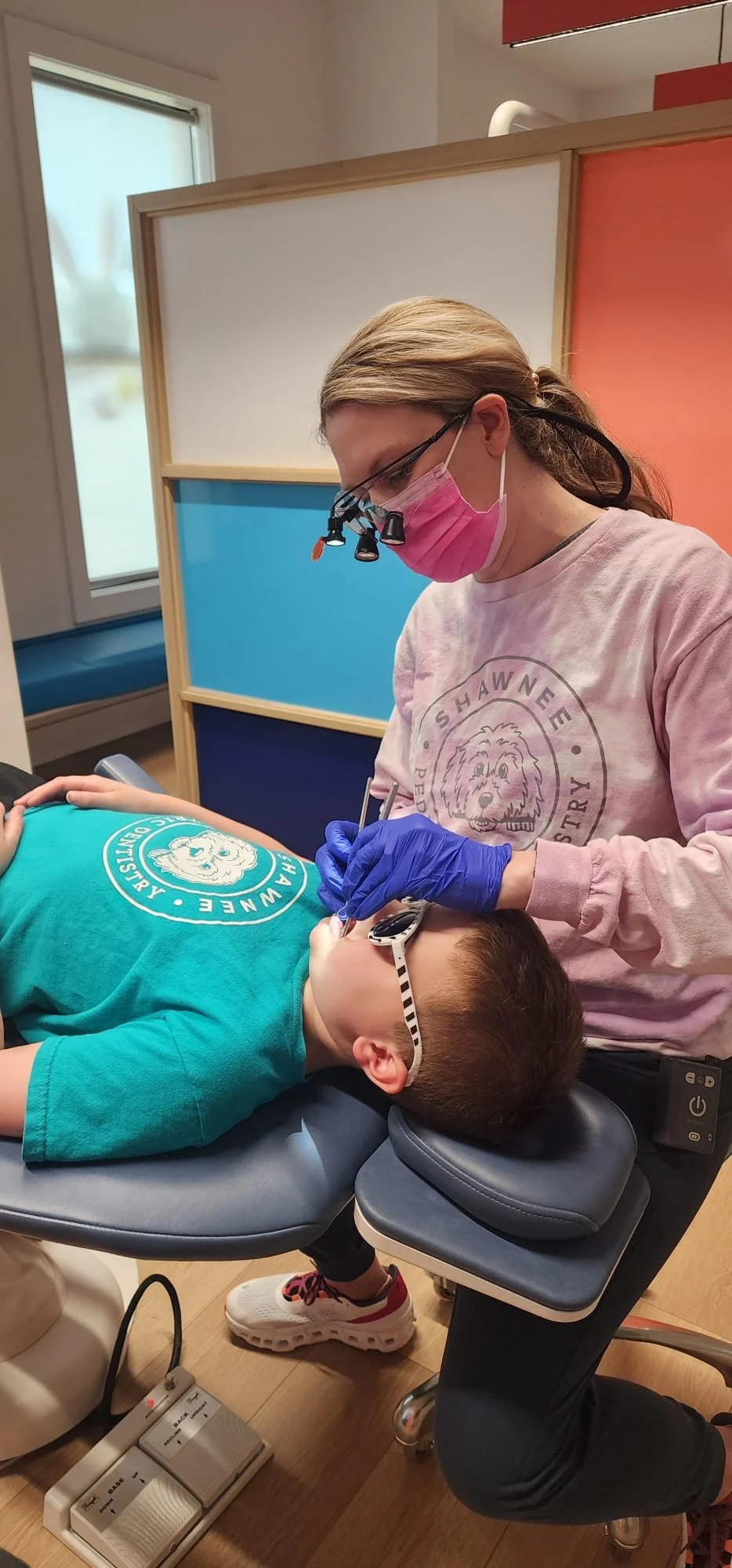safety & comfort
If your child has anxiety or fear about the dental chair, our pediatric dentist, Dr. Sarah Karnish, offers a handful of sedation options to keep your child comfortable and safe while they receive care.
We're pleased to offer sedation to our patients who may require complex or lengthy treatments, to extremely fearful or anxious patients, and to patients who'd simply like a more pleasant experience in our office. The goal of sedation for children is to help your child stay calm and receive the required care.
There are various types of sedation for children. Depending on your child’s needs, we may use a form of conscious sedation, such as nitrous oxide (N2O), also known as “laughing gas.” Conscious sedation allows your child to stay awake and able to follow instructions while keeping them feeling extremely relaxed and calm.
During your child’s consultation appointment, our pediatric dentist will determine which form of sedation is right for their treatment.
Children’s sedation is safe with the right preparation before your child’s appointment and monitoring during and after their appointment. Our office will provide detailed instructions to you and your child on how to prepare for your sedation appointment. Parents can help reduce risk and stress level for their child by following these instructions carefully.
After your child’s sedation appointment, they'll feel groggy and drowsy. Make sure someone will be with your child after their appointment for several hours to monitor them.
Nitrous Oxide
Commonly called “laughing gas,” nitrous oxide is one of the most common forms of sedation used in dentistry. This is helpful for cooperative children with a few cavities. It helps mind anxiety and is very safe and easy to use.
It's administered through a comfortable mask that fits over your child’s nose and takes effect when it is inhaled. This option will keep your child calm and give them feelings of euphoria throughout treatment. Laughing gas wears off quickly, so your little one will be able to enjoy the rest of their day after their visit.
Oral Conscious Sedation
Conscious Sedation may be recommended for apprehensive children, very young children, and children with special needs. It's used to calm your child and to reduce the anxiety or discomfort associated with dental treatments. It's a liquid medication that takes about 45 minutes to become effective.
When under the influence of conscious oral sedation, your child may become drowsy and may even fall asleep, but they'll not be unconscious. Since the effects of drowsiness don’t wear off immediately after treatment, we'll prepare you with the information you need to care for your child both before and after their appointment. Instructions include limiting food and fluid intake prior to your child’s visit and preparing to stay with them for several hours afterward until the sedative wears off completely.
Please remember that you, as the child’s legal guardian, must be present in our office throughout the entire procedure.
IV Sedation
I.V. Sedation is recommended for very apprehensive children, very young children, children with extensive dental needs, and children with special needs that would not work well under conscious sedation.
Dr. Sarah will perform the dental treatment in our office with the child anesthetized under I.V. sedation, which is administered and monitored by an anesthesia provider. IV sedation is a safe and effective option for managing dental anxiety and fear, allowing your child to receive the care they need without difficulty.
Please remember that you, as the child’s legal guardian, must be present in our office throughout the entire procedure.
General Anesthesia
(Coming soon!)
Outpatient General Anesthesia is recommended for apprehensive children, very young children, and children with special needs that would not work well under conscious sedation or I.V. sedation. General anesthesia renders your child completely asleep. This would be the same as if he/she was having their tonsils removed or getting ear tubes.
Dr. Sarah may recommend general anesthesia when:
Your child cannot relax or calm down enough to receive treatment safely
Oral surgery or other treatment is difficult to provide when your child is awake
Your child needs extensive dental work performed in a single visit
Your child has special needs or a disability that limits their ability to understand or comply with directions to safely receive treatment
You'll receive instructions on what your child should eat and drink before and after their procedure, as well as post-operative care following treatment.


